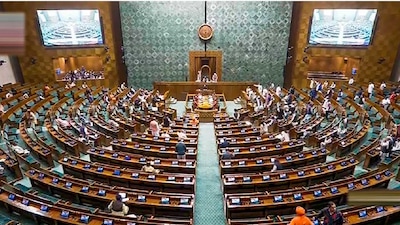The Central Government has taken a major step to streamline the safety, welfare, and employment opportunities of Indian expatriates. The government has begun preparations to introduce the Overseas Mobility Bill, 2025, in Parliament. This bill will replace the Immigration Act, 1983.
The Indian government is now introducing a new law to ensure the safety and welfare of Indian citizens working abroad. The Ministry of External Affairs (MEA) has drafted the Overseas Mobility Bill, 2025, which will be introduced in Parliament. This law will replace the old Immigration Act, 1983.
Migration from India will be transparent.
The Ministry has stated that this bill will create a modern framework to ensure safe, orderly, and transparent migration from India. It will also strengthen policies, schemes, and safeguards for the welfare of Indians working abroad.
Key Features of the Bill
Establishment of an Overseas Mobility and Welfare Council: This new council will facilitate better coordination among various ministries to bring uniformity to policies related to Indian diaspora.
Balanced Approach: This bill will promote overseas employment opportunities while also establishing a regulatory framework to protect and safeguard the interests of vulnerable groups.
Monitoring of International Agreements: This law provides for the implementation and monitoring of international agreements related to migration and mobility.
Data-Driven Policymaking: Policymaking and cross-departmental coordination will be strengthened based on migration data and labor studies.
Public Suggestions Solicited
The Ministry of External Affairs has released this draft bill for public consultation on its website – https://www.mea.gov.in/overseasmobilitybill2025.htm
In addition, people can send their suggestions by November 7, 2025, to the following email address:
- us1.epw@mea.gov.in
- consultant4.epw@mea.gov.in
- so2oia1@mea.gov.in
Millions of Indian citizens migrate to the Gulf countries, Europe, and other parts of Asia for employment every year. The existing Immigration Act, 1983, was considered outdated as global migration rules, technology, and employment patterns have changed. The new bill seeks to introduce a modern, digital, and human-centric migration policy that takes these changes into account.
 RB News World Latest News
RB News World Latest News






